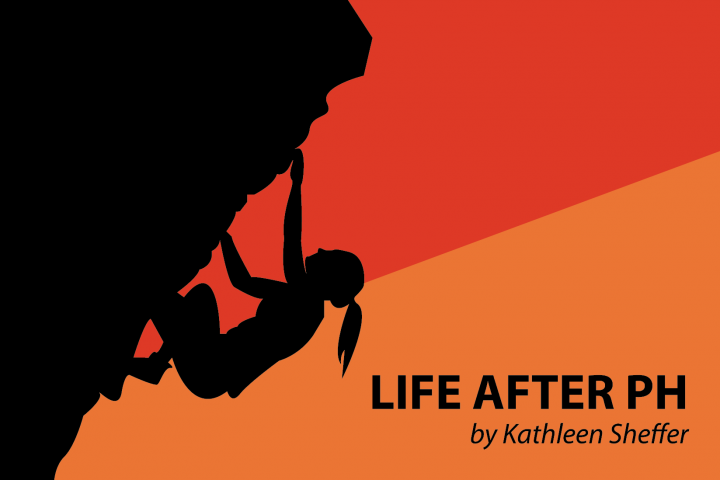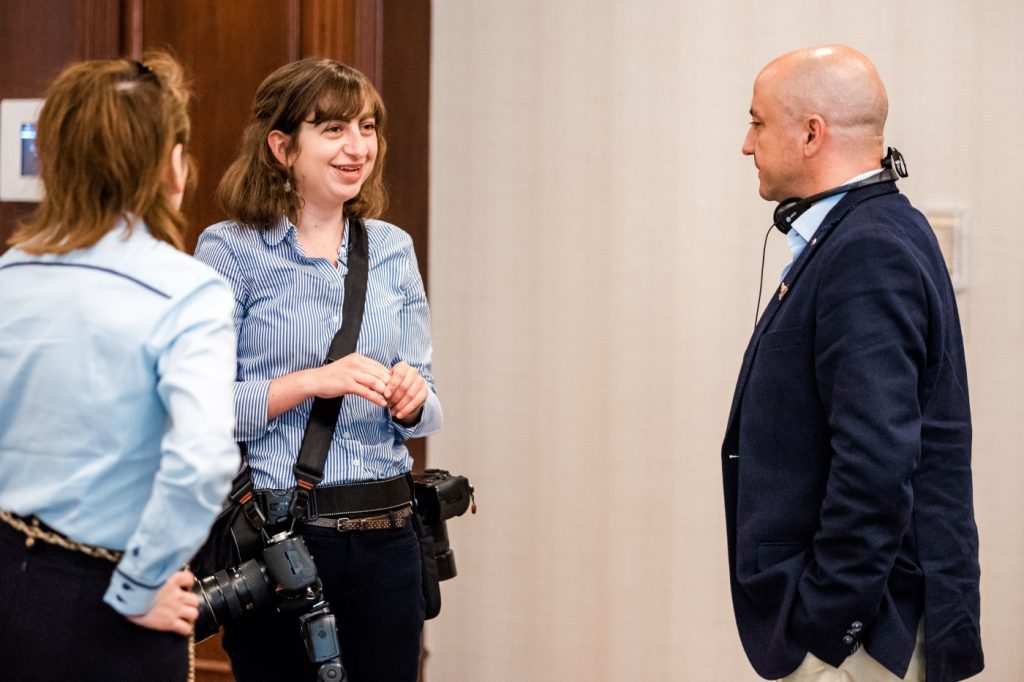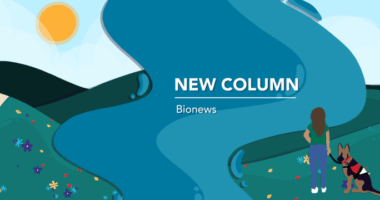Reflections After the PH Association’s 2018 Conference

Icon Orlando lit up with PHA colors. (Photo by Kathleen Sheffer)
At the end of June, I was honored to photograph the Pulmonary Hypertension Association 2018 International PH Conference and Scientific Sessions in Orlando, Florida. This was the ninth PH Conference I’ve attended, but the first without my idiopathic pulmonary arterial hypertension.
On Sunday, July 1, the last day of Conference, I celebrated being two years post-heart-lung transplant. Or tried to. Austin, my second shooter, and I finished shooting at noon. We proceeded to transfer our seven bags of equipment and clothes to a hotel close to the airport. Then we went to sleep. Three full days of work left us utterly exhausted. And I mean full. Austin and I were scheduled to cover as many as six concurrent sessions at a time, starting early in the morning until 9 at night. After we each dumped our memory cards, I stayed up editing the best photos of the day.
Despite the workload, I am so glad I went. In 2016, I applied and was selected to photograph Conference in Dallas, Texas. Then, I wound up hospitalized a month before I planned to shoot it. I had my transplant weeks after the 2016 Conference. Though I was severely disappointed then, I now know there’s no way I could have managed to run around getting all the shots I needed when I had PH.
I think I have a decent memory of what life was like with PH, but hearing other patients breathe heavily as they spoke brought it all back to me. I’m unable to put into words the full impact of my healthy, donated organs, so I’ll just say it was very special to be able to photograph Conference while feeling my absolute best.
PHA’s Conference draws a diversity of attendees — from medical professionals to pharmaceutical reps to caregivers, children, and volunteers. I can always spot the patients, though. Some use mobility scooters; others carry infusion pumps or supplemental oxygen. If you know what to look for, the blue lips and flushed cheeks are hard to miss.
Besides my scar, which was mostly hidden under my clothes, I exhibited no physical signs that I originally was a PH patient. That was bizarre! Other than people who I’d met before, no one knew I had had PH unless I told them. So, I did tell them. And the response was so positive! Parents told me they need to hear my story because it gives them hope for their children. Nurses hugged me and told me I’m the reason they keep doing their work. One caregiver looked me up and down, turned to her sister, and said, “We need to get you on that list.”
All this was a bit embarrassing. As narcissistic as it may be to write an autobiographical column, I really prefer to stay out of the spotlight. When people approach me to say they read my blog (this happens alarmingly frequently), I thank them enthusiastically. Internally, I try to shrink myself until I disappear. My mind darts to all the intimate details of my bodily functions they may recall. Hopefully, we’re not thinking of the same things in that moment! Maybe I should write less about my bowel movements. (Sorry, that’s probably not going to happen.)
Join the Pulmonary Hypertension News forums to know more about what this conference is and what was discussed in it.
In one session, a moderator called me out as I approached him with a camera. Something along the lines of, “Uh-oh. Here she comes!” A woman in the audience I’d spoken to earlier stood up, took the microphone, and asked, “Do you know who she is?” She went on to explain that I had been a PH patient, and I no longer have PH. She left it at that, so I clarified for the confused onlookers that I’d had a transplant. Nervously, I kept snapping pictures of the speakers while everyone clapped for me. I stood there looking through my viewfinder while everyone in the room looked at me. So awkward!
Though I rarely put down my camera, I did try to notice and honor the emotions I had over the weekend. Emotions beyond humiliation, to be clear. I took a couple of breaks to go cry in my hotel room when it all got to be too much. I called my parents, who normally attend Conference with me. As events happened, I took notes on what affected me most. Those observations don’t fit here, so I’ll share more in my column next week Wednesday.
***
Note: Pulmonary Hypertension News is strictly a news and information website about the disease. It does not provide medical advice, diagnosis, or treatment. This content is not intended to be a substitute for professional medical advice, diagnosis, or treatment. Always seek the advice of your physician or other qualified health provider with any questions you may have regarding a medical condition. Never disregard professional medical advice or delay in seeking it because of something you have read on this website. The opinions expressed in this column are not those of Pulmonary Hypertension News or its parent company, Bionews Services, and are intended to spark discussion about issues pertaining to pulmonary hypertension.










Allan Edmondson
Well done Katheen. I can imagine some of the emotions you felt during the recent Conference. As a Carer for my wife (Sandra) for the last nine years and also attending the 2014 Conference in Indianapolis representing NZPAH, the buzz and hype of the Conference is just so hard to describe to anybody not connected with PH. They just don't understand the emotions that runs through your body and mind. The air is full of positivity with your mind and brain fully open to receive new information on PH and/or how to overcome this or that obstacle as a patient or a caregiver.
Finally, thank you for your candid remarks during your photographic sessions. You were extremely brave and courageous to face the reality of your past demon and recording it also.
All the very best for your future.